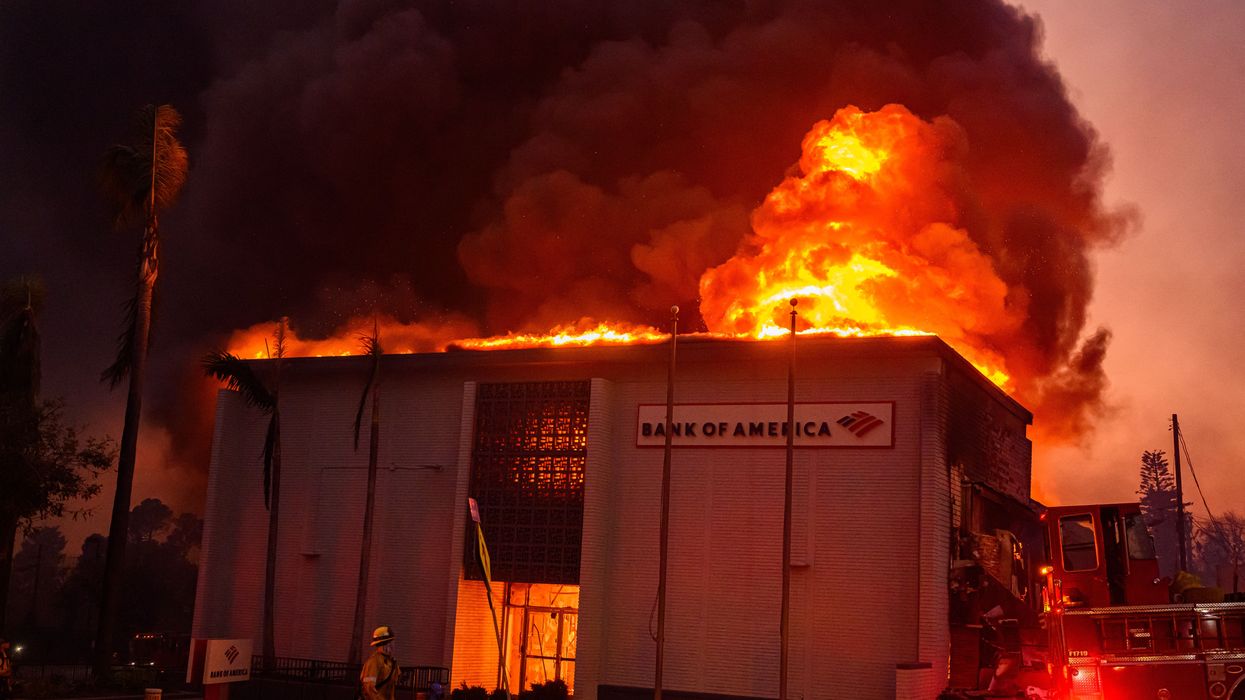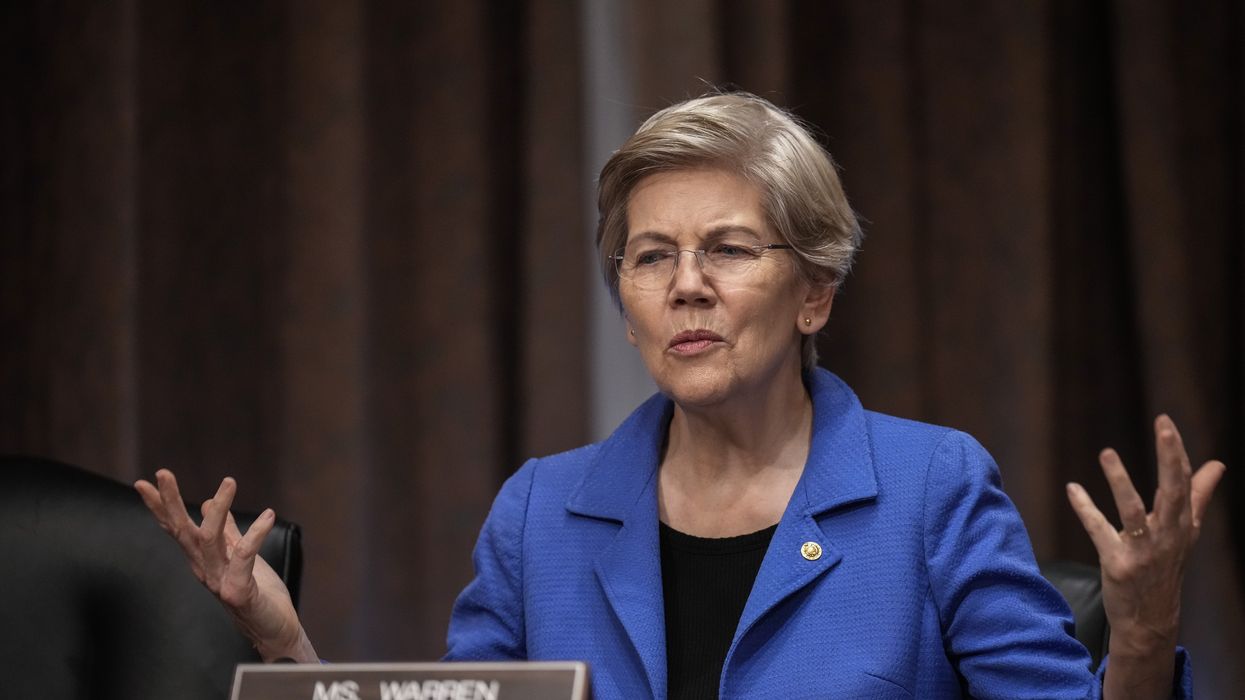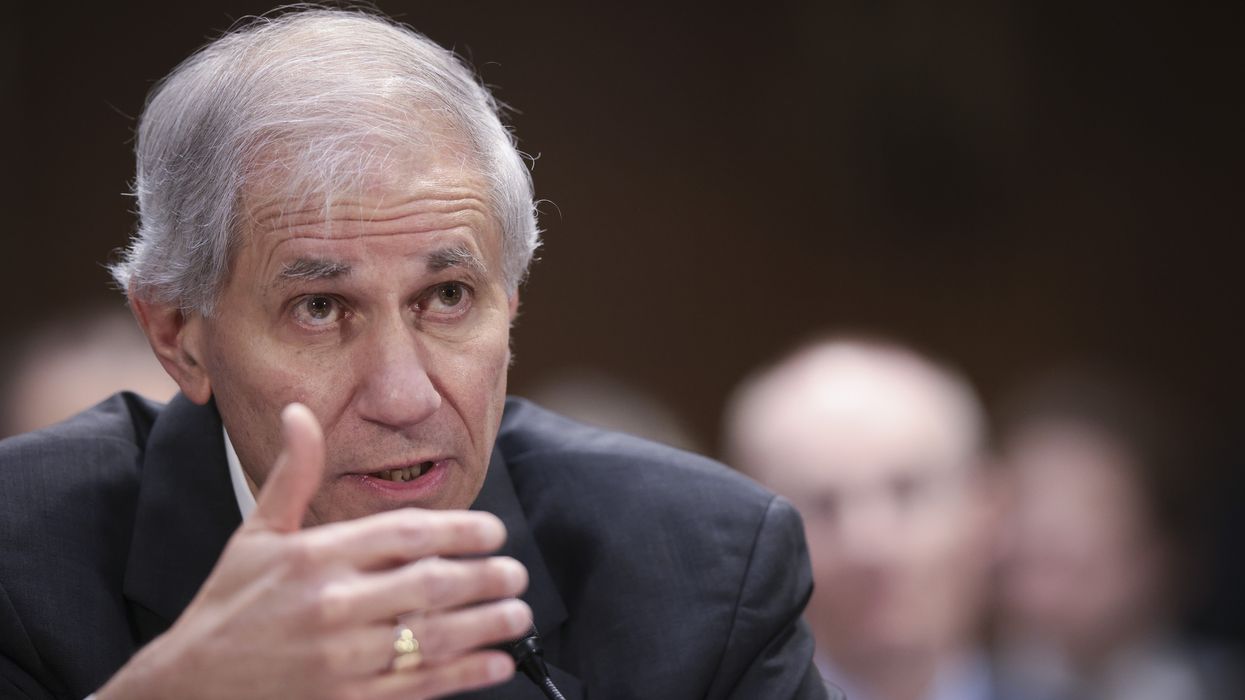As Planet Burns, US Banking Agencies Ditch Climate Risk Rules
Federal Reserve Chair Jerome Powell recently warned that due to climate disasters, "there will be regions of the country where you can’t get a mortgage, there won’t be ATMs, banks won’t have branches."
Federal regulators have rescinded a set of guidelines for large banking institutions to consider the financial dangers of the climate crisis when making decisions about business strategy, risk management, and strategic planning.
On Thursday, the Federal Deposit Insurance Corporation (FDIC), Office of the Comptroller of the Currency (OCC), and the Federal Reserve Board announced that they would immediately withdraw their interagency Principles for Climate-Related Financial Risk Management for Large Financial Institutions, a framework that required financial institutions with $100 billion or more in assets to consider climate risks.
The guidelines were first issued in 2023, which was, at the time, the hottest year on record. That year, the US experienced a record number of weather and climate-related disasters—including a massive drought across the south and Midwest, historic wildfires in Hawaii, and major flooding events across the country—that caused at least $92 billion worth of damage.
In October of that year, Federal Reserve chair Jerome Powell said: "Banks need to understand, and appropriately manage, their material risks, including the financial risks of climate change."
The OCC, meanwhile, explained that "financial institutions are likely to be affected by both the physical risks and transition risks associated with climate change." This included both the risks to the safety of people and property "from acute, climate-related events, such as hurricanes, wildfires, floods, and heatwaves, and chronic shifts in climate," as well as changes due to "shifts in policy... that would be part of a transition to a lower carbon economy."
But these concerns have not carried over to the administration of President Donald Trump, who recently referred to climate change as a "con" and has sought to purge the federal government of any acknowledgement of the scientific consensus that it is being caused by human fossil fuel usage, which he has moved to aggressively expand.
In a joint release Thursday, the agencies said they "do not believe principles for managing climate-related financial risk are necessary because the agencies' existing safety and soundness standards require all supervised institutions to have effective risk management commensurate with their size, complexity, and activities," adding that "all supervised institutions are expected to consider and appropriately address all material financial risks and should be resilient to a range of risks, including emerging risks."
Elyse Schupak, policy advocate with Public Citizen's climate program, criticized the withdrawal of the guidelines, calling it "an irresponsible and politically motivated move in the wrong direction."
"The increase in the frequency and severity of climate disasters and the rapidly escalating property insurance crisis mean the agencies should be working harder to understand and mitigate climate-related financial risks faced by banks and the financial system—not backtracking," she said. "Effective bank regulation requires looking squarely at all risks to supervised institutions, including climate risks, and addressing them before they have destabilizing effects. This approach, rather than politics, should guide regulator action."
The move comes as the globe is reaching the point of no return for the climate crisis. Global temperatures have already soared to between 1.3°C and 1.4°C above preindustrial levels and are expected to pass the 1.5°C threshold within the next five years, at which point many of the worst effects will become unavoidable. These effects include more frequent heatwaves, sea level increases, more frequent severe storms, and aggressive droughts.
In addition to the human toll, these entail considerable financial damage. In December 2024, the Congressional Budget Office (CBO) estimated that if the Earth continues to warm at current rates, the nation's gross domestic product (GDP) will be 4% lower than if temperatures had remained stable.
It predicted that sea level rise—projected 1 to 4 feet by the turn of the century—would cause anywhere from $250 billion to $930 billion worth of losses to property owners, mortgage lenders, insurance companies, and the federal government. Other untold costs, it said, would be borne as a result of heightened mortality from heat, declines in available food and water, increased rates of illness, and forced migration due to unlivable conditions.
Testifying before Congress earlier this year, Powell noted that banks and insurance companies have been pulling out of coastal areas at risk of flooding and places prone to wildfires due to the financial risk.
State Farm had recently canceled thousands of policies in the Pacific Palisades neighborhood of Los Angeles shortly before it was hit with massive wildfires in January. He warned that as climate change worsens, financial institutions will deem it too risky to serve large portions of the country.
"If you fast forward 10 or 15 years," Powell said, "there will be regions of the country where you can't get a mortgage, there won't be ATMs, banks won't have branches, and things like that."
Schupak said: "For the Federal Reserve, capitulation to the politics of climate denial championed by the Trump administration is a threat to both its legitimacy and efficacy, which will be hard to repair."
"Powell has admitted that the Federal Reserve has done the 'bare minimum' on climate," she continued. "Now it will do even less, putting the banks it supervises and the broader financial system at risk."


